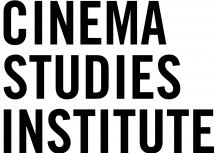CFP: Performance and Experience: A Collection of Essays on Acting by Non-Actors in the Cinema
CFP: Performance and Experience: A Collection of Essays on Acting by Non-Actors in the Cinema
Proposed by Catherine Russell
Actors without training who play characters in fiction films are usually referred to as non-professionals or non-actors and have come to proliferate in independent cinema and “global art cinema.” Little scholarly work has been devoted to this phenomenon, but the study of non-professional acting can be a rich avenue of investigation into the role of the body in film aesthetics and the human interactions that underpin film production. Beyond neorealism, it can help us understand the role of experience in filmmaking, and the power dynamics implicit in the situation of filmmaking. Walter Benjamin understood film performance as a primal encounter between the human body and the technology of cinema, and thus as an allegory for the people-machine encounter that has subsequently evolved into the digitization of everyday life.
Non-professional acting marks multiple borderlines between fiction film and documentary and between film and the performance arts including dance, music, circus, sports and rodeo. Non-professional acting is a means of giving drama an ethnographic aspect; and also a means of bringing ethnography into the realm of speculation and fiction. Non-professional acting flags the critical question of film labour, not only as an issue of compensation and workplace protection, but equally as an issue of aesthetics and anti-corporate, anti-celebrity being.
The legacy of neorealism established the realist aesthetics of these films, and the discourse of liberal humanism that underpins the discourse around casting and performance style as well. Robert Bresson referred to his non-professional performers as “models” and, like Andre Bazin, felt that they were only useful for one performance. More recently, directors have adopted a more humane and collaborative attitude toward the people cast in their films who are not (yet) movie stars. Sean Baker refers to his actors as “first timers,” leaving a space for them to pursue an acting career should they choose to do so. Others, such as Zacharias Kunuk, work in collaboration with a specific community who perform in his films.
While film acting has received a great deal of scholarly attention, the bulk of this work has been devoted to star studies, and the performances of well-known actors. Some work on film labour has begun to address issues of non-professional film performance, and in 2024, two monographs on the topic were published by Catherine O’Rawe (The Non-Professional Actor (Bloomsbury) and Miguel Gaggiotti Nonprofessional Film Performance (Palgrave-MacMillan), laying the groundwork for more considered discussion of the aesthetics, politics and effects of non-professional film performance. While the most innovative filmmaking defies boundaries between fiction, documentary, experimental and essayistic modalities, this collection will emphasize the roles of untrained actors in dramatic fiction, looking at actors performing characters who are not necessarily “themselves,” no matter how closely aligned their characters and themselves may be.
In 2017 Film at Lincoln Centre programmed a series of films featuring non-professional actors. While it is by no means an exhaustive list of all the relevant films, it may be a good starting point to consider the scope of the topic. https://www.filmlinc.org/daily/the-non-actor-a-historical-survey-spanning-over-40-films-begins-november-24/
Proposals for films and performers who are women, Black, Indigenous or racialized, or from the Global South are especially welcome, although all proposals will be considered.
Possible approaches to the topic of non-professional film performance include:
1. Discussion of the casting and aftermath of individuals cast in fiction films.
2. Close analysis of performances, including “amalgams” of professional and non-
professional.
3. Relationships between directors and non-professional actors
4. Contracts, legal documents and other labour arrangements
5. Non-professional actors and digital cultures
6. Reality television
7. Ethical issues raised in specific productions
8. Dramatic fiction in amateur filmmaking
9. Dramatic fiction in visual anthropology
10. Philosophical effects of non-professional performance
11. Performance studies and non-professional film acting
12. Non-professional acting and the legacy of neorealism
13. An interview with a director about their work with non-professional actors
14. An interview with a performer in a fiction film who can be considered “non-professional.”
Proposals should be 300 words, accompanied by a short bio and a bibliography.
Please send to katie.russell@concordia.ca by July 15
I have provisional interest from Routledge for a publication. Translation of previously published essays or interviews will also be considered. Please don’t hesitate to contact me for additional information. If all goes well, final essays will be expected in Summer 2025.
Archives
Membership Services / Adhésion
To join or renew with FMSAC, please click here to access Membership Services.
Pour se joindre à l'ACÉCM ou pour renouveler votre adhésion, cliquez ici pour accéder aux services aux membres.
For more information about membership benefits, click here.
Pour plus d'informations sur des avantages d'adhésion, cliquez ici.











